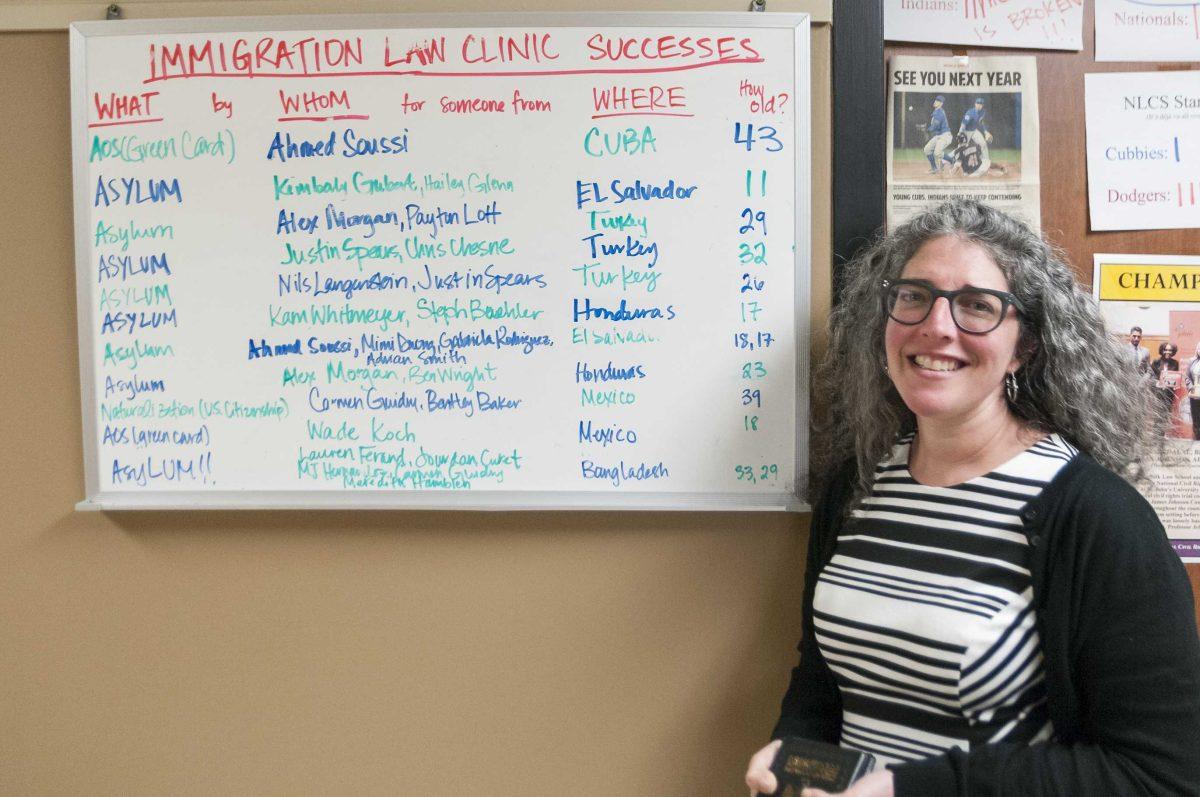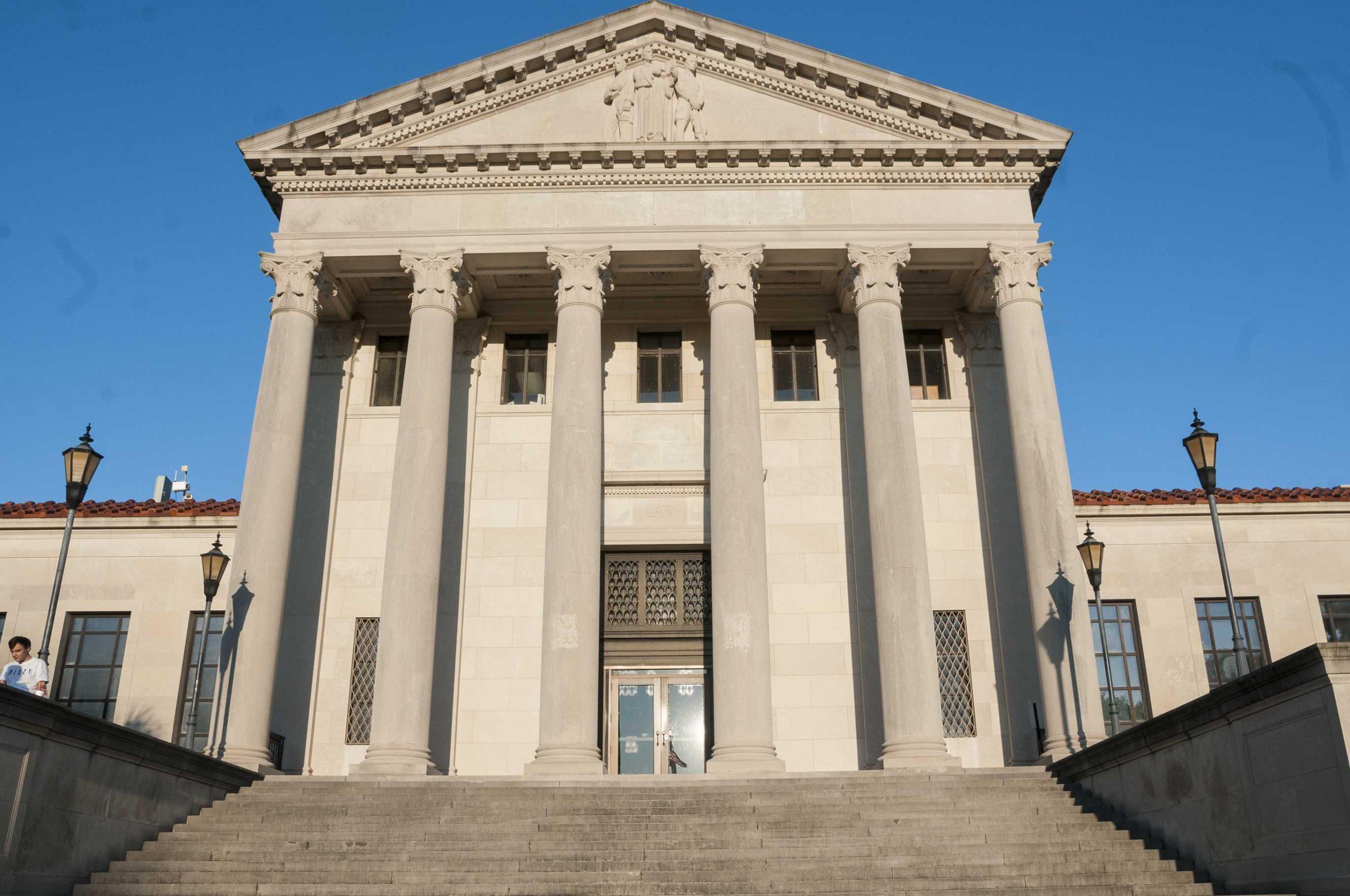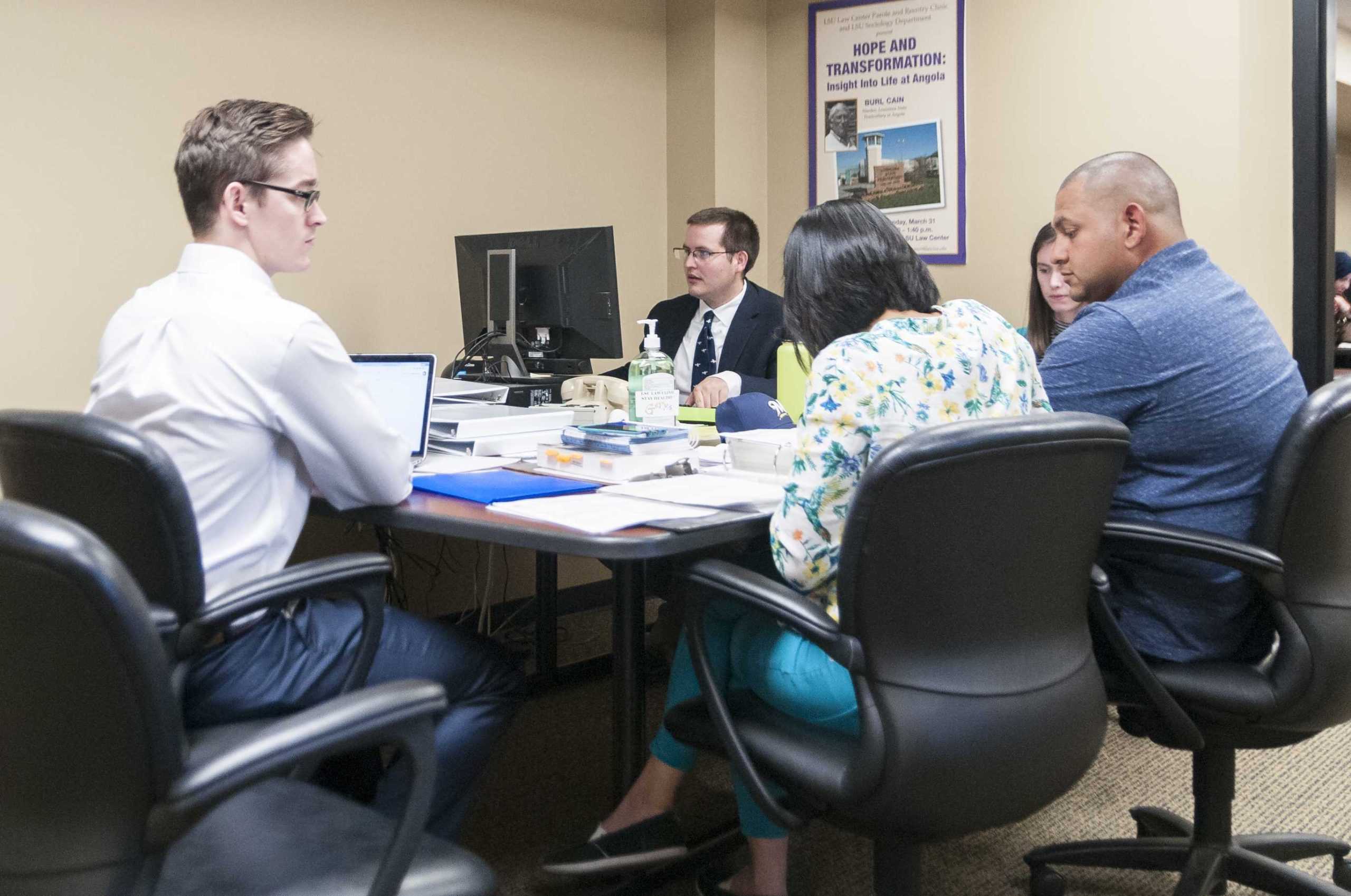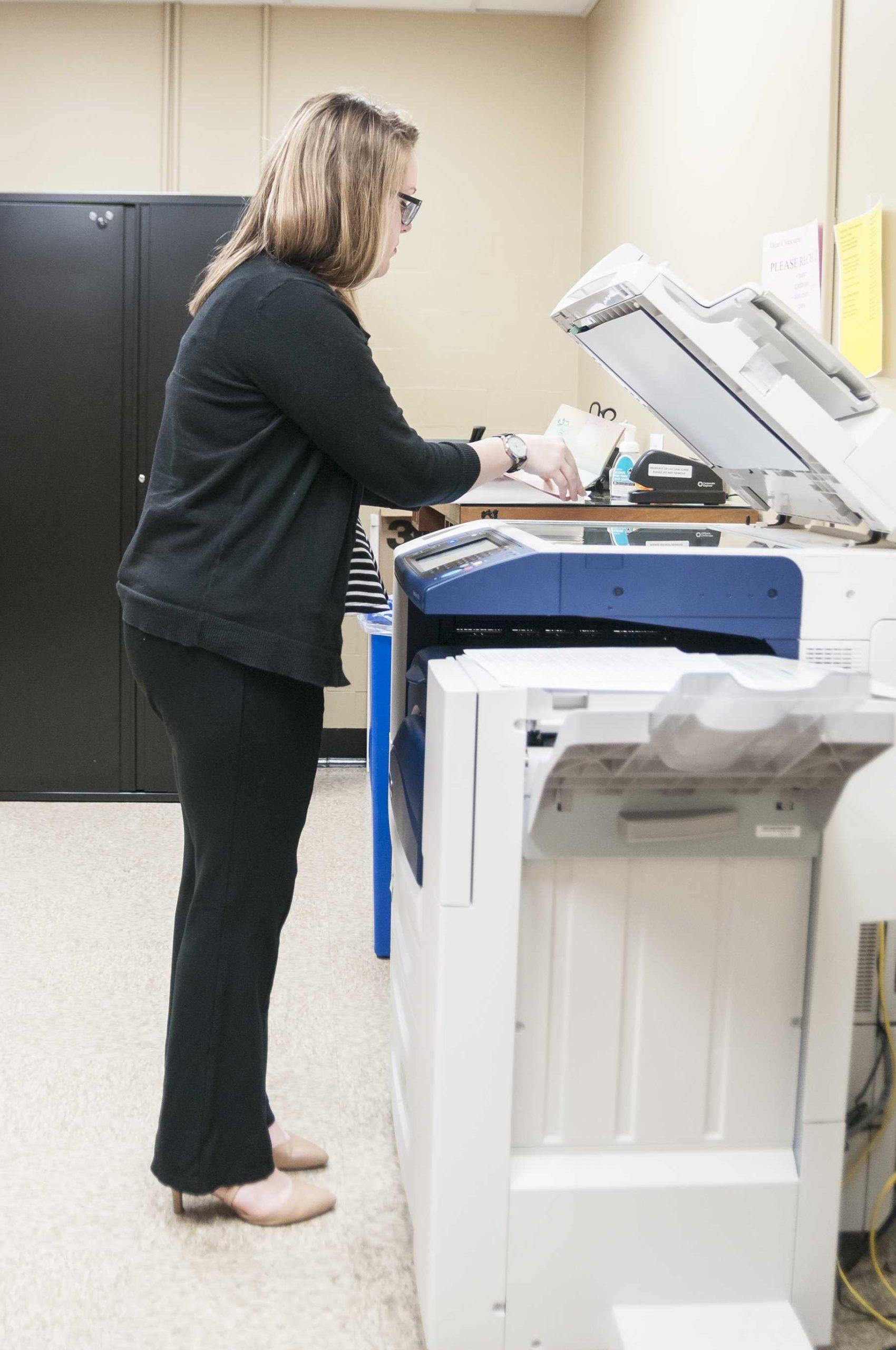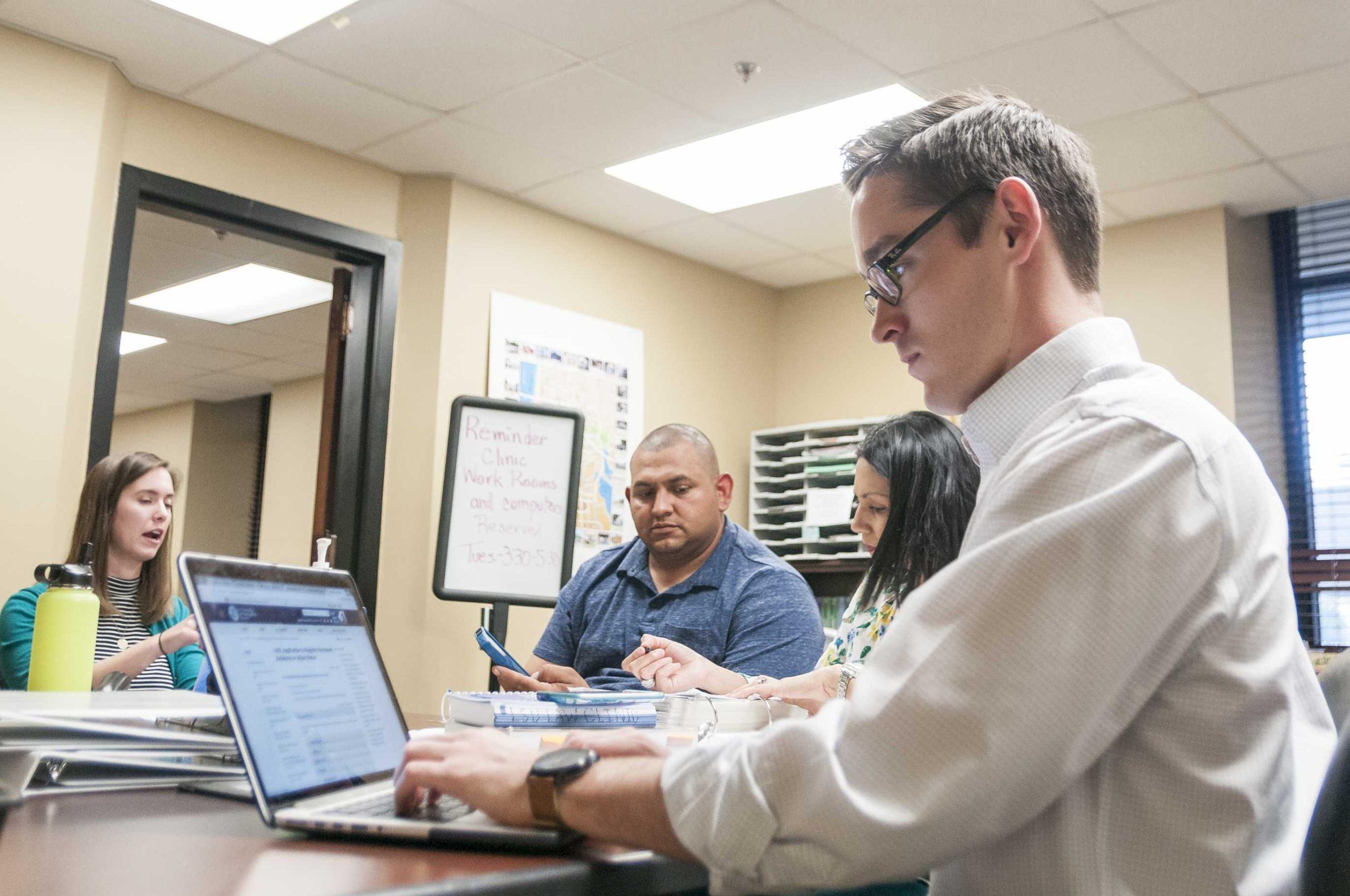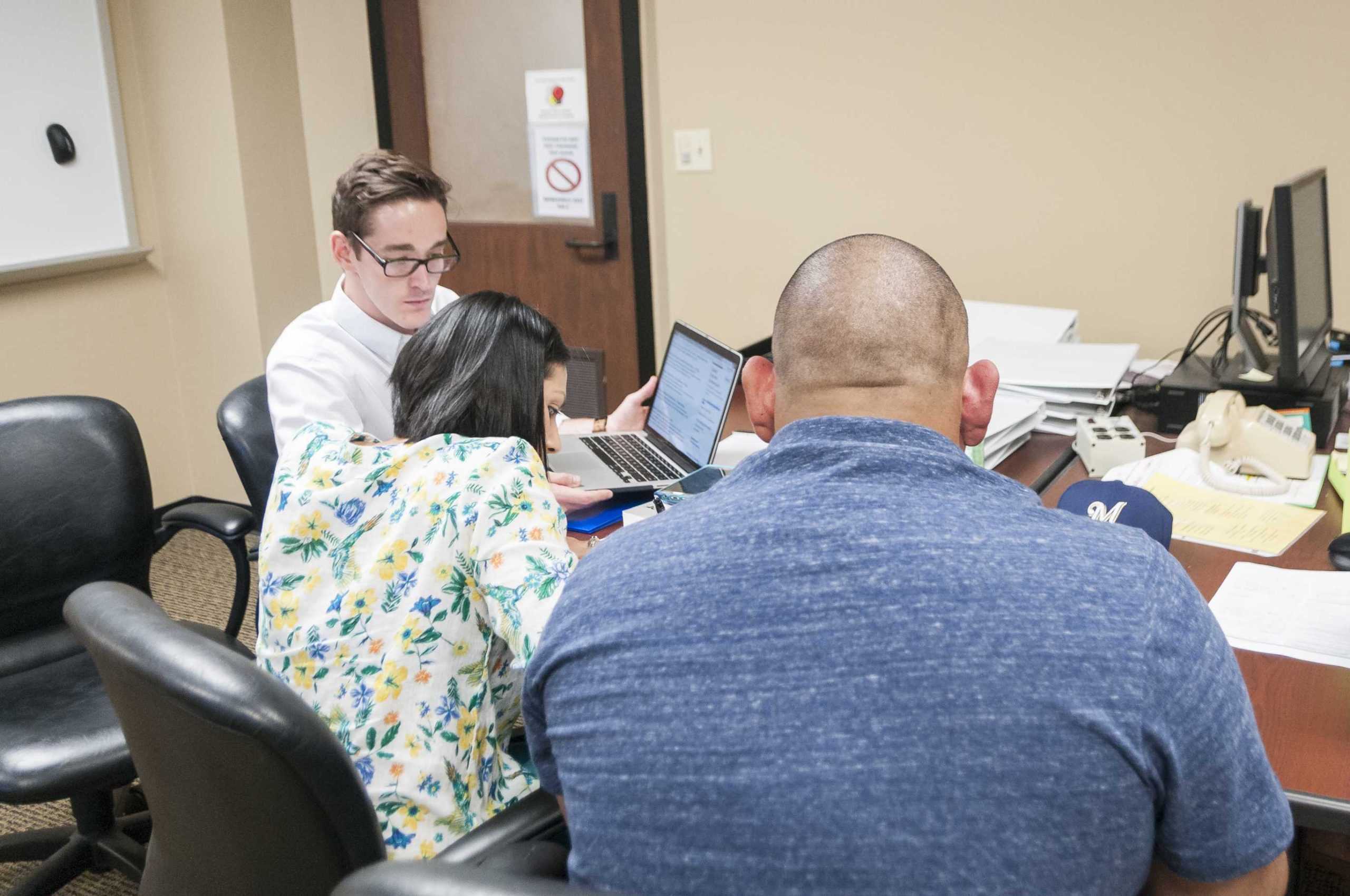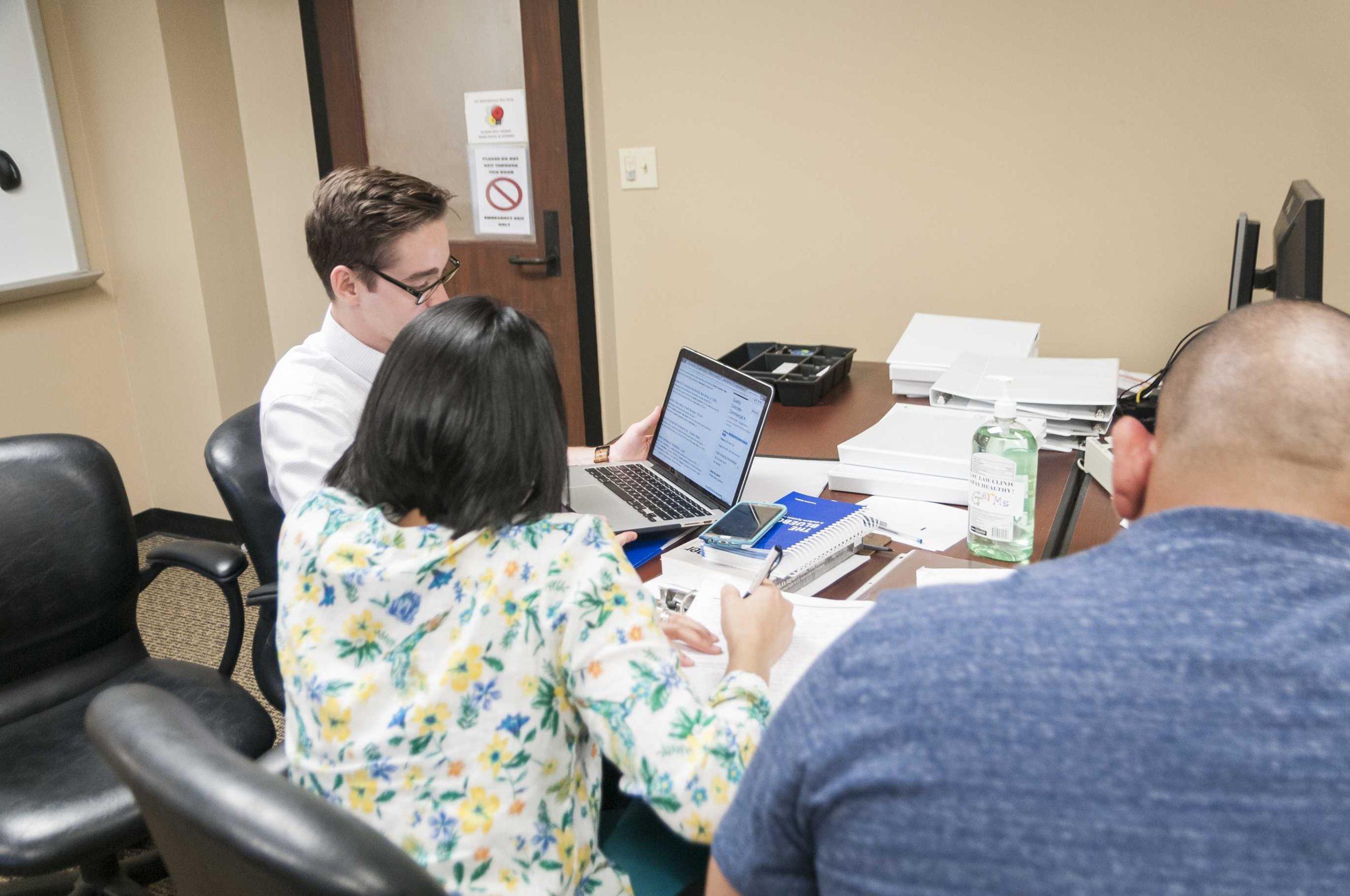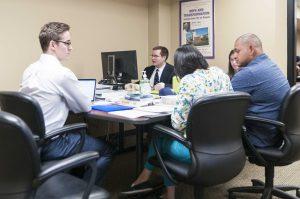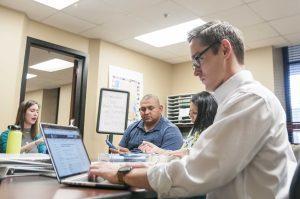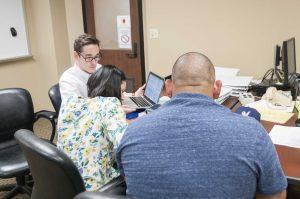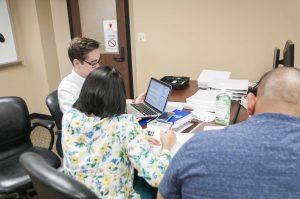The Paul M. Hebert Law Center Immigration Law Clinic has helped gain asylum for 23 immigrants facing danger in their home countries.
The clinic also helps clients with naturalization, green card applications and visas for abused, abandoned or neglected juveniles, but the vast majority of cases involve asylum.
Clinic director Lauren Aronson said these cases also tend to be tricky and challenging for the law students to tackle.
“Because asylum is so complicated and because it’s what we do the most of, I devote three entire weeks of class to it,” Aronson said.
Aronson is responsible for picking which cases the clinic accepts, supervising the law students’ work on the cases and teaching immigration law, all while challenging her students by picking cases that are not easy to win.
“Basically, what I’m looking for, is if [the case] would be an interesting issue for a student to work on,” Aronson said. “I don’t pick a case because I know for sure it’s going to win. It just has to be viable.”
One case involved a woman from Baton Rouge who entered the country illegally in 1999 when she was 15 years old. She was granted temporary protected status two years later. Then in 2018, she was under threat of losing her legal status in the U.S. To complicate things even further, she had lost all of her and her husband’s paperwork in the 2016 floods that documented her legal residence. The Immigration Law Clinic had to hunt through any and all remaining forms their client had to prove her lawful presence.
“There were a lot of variables,” said Chris Chesne, the student responsible for her case. “I did not expect it to be as intense of a process as it was.”
Many cases were also emotional for the students. For example, one case involved a woman fleeing to the U.S. to escape horrifying domestic abuse in Honduras.
Annie Lanier, the student responsible for her case, said the woman had been forced into marriage at gunpoint when she was only 12 years old. During her time in Honduras, her husband repeatedly beat her in public and once cut her with a machete.
The woman has been in the U.S. for about 15 years and has four children living here legally. The Law Clinic has already helped her two daughers get asylum and they have completely prepared her asylum application, but she still has not decided whether she will risk applying for asylum because if her application is rejected, she will be put into deportation proceedings, Lanier said.
“It was really nerve-racking and frustrating,” Lanier said. “If she goes back, I think [her ex-husband] will find her [and kill her] … I don’t know if I would have been able to make it. I don’t know how she’s still alive.”
These cases are becoming more difficult since U.S. Attorney General Jeff Sessions narrowed the scope of asylum cases over the summer, removing gang violence and domestic abuse from the list of qualifiers.
Even though the Immigration Law Clinic continues to take on difficult cases, it has a perfect record for the all the asylum cases it has submitted.
“We’ve had a couple cases where I thought there’s just no way where I think a person should qualify,” Aronson said. “But I doubt the government will agree, but miraculously, it did.”
LSU Immigration Law Clinic students help immigrants gain asylum
By Ben Holden
October 15, 2018
Director of the LSU Paul M. Hebert Law Center Immigration Clinic Lauren Aronson during the LSU Law Immigration Clinic on Tuesday, March 20, 2018, in the LSU Law Center.



